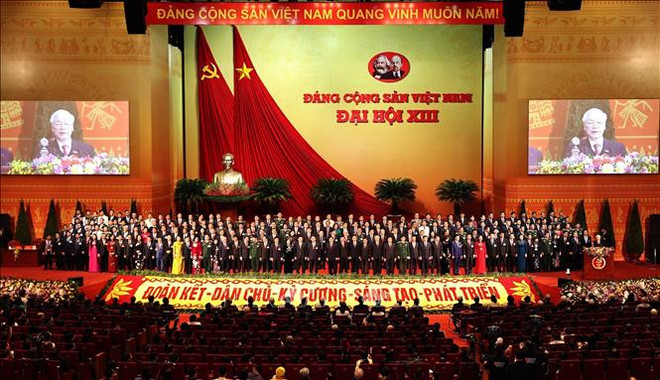 The 13th Party Central Committee make debut at the 13th National Party Congress. Illustrative image (Photo: VNA)
The 13th Party Central Committee make debut at the 13th National Party Congress. Illustrative image (Photo: VNA)The event was organised virtually by the Centre forVietnam and ASEAN Studies under the Institute of Far Eastern Studies of theRussian Academy of Sciences.
Ekaterina Koldunova, Director of the ASEAN Centre atthe Moscow State Institute of International Relations, said in the face of economicand political complexity in a changing world, Vietnam has actively engaged ininternational integration. According to her, the country has an outstanding advantage compared to regional neighbours in terms of stable politics and continuity in political power
Nicholas Chakpman, a scholar from Japan’s TohokuUniversity, said Vietnam’s multilateral foreign policy has laid a foundationfor the country to sail through global challenges and raise its prestige in theinternational arena.
According to Viktor Sumskiy from the Russian ASEANCentre, the CPV is among the very few organisations in the world that couldperform the most complex political goals in a very short time, such as planning and implementing the national liberation revolution against colonialists, the struggle for national reunification during the peak time of the Cold War, and socio-economic reforms.
By integrating into the world and interacting with allpossible partners, Vietnam, under the leadership of the CPV, has maintained itsrevolutionary achievements to move forward, the scholar said.
The participants also looked into Vietnam’ssocio-economic development and external affairs according to the resolutionadopted at the 13th National Party Congress, along with challengesfacing the country like dropping fertility rate, ageing population and denseurban areas. /.



























